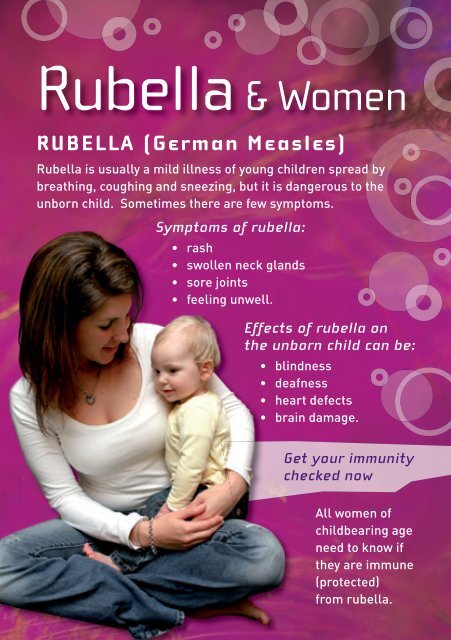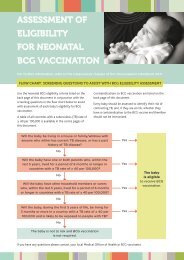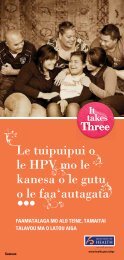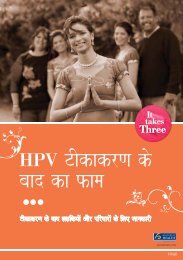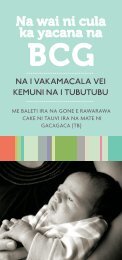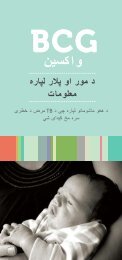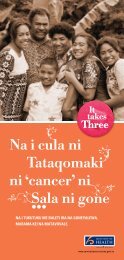You also want an ePaper? Increase the reach of your titles
YUMPU automatically turns print PDFs into web optimized ePapers that Google loves.
Rubella & Women<br />
RUBELLA (German Measles)<br />
Rubella is usually a mild illness of young children spread by<br />
breathing, coughing and sneezing, but it is dangerous to the<br />
unborn child. Sometimes there are few symptoms.<br />
Symptoms of rubella:<br />
• rash<br />
• swollen neck glands<br />
• sore joints<br />
• feeling unwell.<br />
Effects of rubella on<br />
the unborn child can be:<br />
• blindness<br />
• deafness<br />
• heart defects<br />
• brain damage.<br />
Get your immunity<br />
checked now<br />
All women of<br />
childbearing age<br />
need to know if<br />
they are immune<br />
(protected)<br />
from rubella.
PROTECT UNBORN CHILDREN:<br />
ARE YOU IMMUNE TO RUBELLA<br />
You are likely to be immune if:<br />
• you have already had rubella<br />
• you have had rubella immunisation.<br />
Rubella can affect your unborn child causing serious defects.<br />
Your rubella immunity can stop your baby being infected.<br />
IMPORTANT MESSAGES<br />
If you are planning pregnancy, check in early with your midwife or doctor<br />
to see whether you need to be immunised from rubella.<br />
When you get immunised, avoid getting pregnant for at least one month.<br />
If you think you might be pregnant and your immunity was not tested,<br />
check early with your midwife or doctor.<br />
The worst time for a pregnant woman to get rubella<br />
is during the first three months of pregnancy:<br />
• If you think you are pregnant, try to keep away from children<br />
with a rash and adults who are unwell with flu-like symptoms<br />
unless you know you have immunity from rubella.<br />
• If you have children, make sure they are immunised. The MMR (measles,<br />
mumps, rubella) vaccine is offered to all children at 15 months of age,<br />
and the second dose is at four years before starting school.<br />
• If you are pregnant and in contact with people who have rubella, tell<br />
your doctor or midwife straight away. You will need to have tests to<br />
check whether you are immune or whether you have caught rubella.<br />
Rubella can be difficult to diagnose and the immunisation is not 100% effective.<br />
Talk to your doctor, nurse or community health worker. Ask for a blood test to<br />
find out if you are immune.<br />
Make sure your children are immunised<br />
This resource is available from www.healthed.govt.nz<br />
or the Authorised Provider at your local DHB.<br />
Revised April 2010. Reprinted April 2010.<br />
Code HE4172


